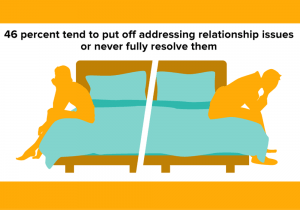
Hypoactive Sexual Desire Disorder (HSDD)
Sometimes you want sex, sometimes you don’t. That’s normal. Every woman has her own level of what is considered “normal” based on their own experiences and biology.

If you struggle with incontinence and have concerns about leaking during sex, you’re not alone. The American Foundation for Urologic Disease (AFUD) reports that one in three women with stress incontinence avoids sex due to fears of leaking during intercourse or orgasm. But incontinence during sex doesn’t have to be an issue. Below are some tips to manage your incontinence and reclaim your sex life.
Believe it or not, your behavior prior to sex can have a big impact on your chances of leaking during the act. Here are a few tips to help you avoid an uncomfortable situation:
If you’ve tried the steps above to no avail, consider talking to your doctor about your condition. Incontinence is not a normal part of aging and many things can be done to correct the situation. Your doctor can tell you about options that will best fit your needs. Need help finding a physician? Click here.
This blog originally appeared on the BHealth Blog from The National Association For Continence, a non-profit association providing resources and support to those living with incontinence. For more articles, information and tools on managing bladder and bowel health conditions, please visit www.nafc.org.

Sometimes you want sex, sometimes you don’t. That’s normal. Every woman has her own level of what is considered “normal” based on their own experiences and biology.

Sex shouldn’t hurt…But sometimes it does. Between 10% and 20% of women in the U.S. experience persistent pain during sex—a condition referred to as dyspareunia.

For some women, reaching orgasm can be difficult. Fortunately, there are steps you can take to address the problem and have a more satisfying sex life.

When a woman becomes sexually aroused, her body will respond with physical and emotional changes. For some women, though, this arousal response doesn’t happen as expected. The desire may be there, but the body or the mind (or both) don’t respond.

Sociologist, sexologist and relationship expert Dr. Pepper Schwartz joins our Sex+Health podcast for a three-part discussion on the range of female sexual difficulties and offers practical advice and resources for women (and their partners).

Why aren’t couples talking about sex? Despite increasing public acceptance of sex as an everyday topic and a trend towards more empowered health consumers, people continue to feel uncomfortable talking about sexual health issues—even behind closed doors.
ASHA believes that all people have the right to the information and services that will help them to have optimum sexual health. We envision a time when stigma is no longer associated with sexual health and our nation is united in its belief that sexuality is a normal, healthy, and positive aspect of human life.
ABOUT
GET INVOLVED
ASHA WEBSITES
GET HELP
© 2025 American Sexual Health Association